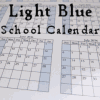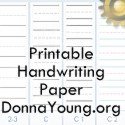Lesson Plans from a Guide or Tools
Natural Speller and other books by Kathryn Stout provide us with tools for making and teaching lessons. We are empowered with and sometimes overwhelmed with the freedom of customizing our children's lessons. Below is an illustration of a general way to harness the material that is provided in Natural Speller so that you can present the material thoroughly.
Related at donnayoung.org: What is Natural Speller? Book Review Archives: Natural Speller
~*~*~*~*~*~*~*~*~*~*~*~*~*~*~*~*~*~*~*~*~*~*~*~*~
The information on this page demonstrates only one way to make lesson plans for spelling. Certainly their are more ways and many ways that are more simple than this one.
The main resource is Natural Speller. Other resources are listed in the Reference Materials Column. The forms used to make these plans are the goals forms, a quarter or semester planner and finally a weekly planner. I suggest that you use your word processor to make the spelling plan. To do that, make a table that is 6 columns wide and add rows as you need them or use 6 columns of a spread sheet program. See the spelling plan to see what the table looks like.
The Steps
1. The first thing to do is to find out what activities should be done. Natural Speller supplies this information.
2. Divide the activities into 5 groups.
3. Give the individual activities reference numbers.
4. Copy all the lists that you will need and place them in your planner book.
5. Assign one of the 5 groups of activities to one of the days of the week see example
6. Choose which word lists that you will use for each week. If you have more than one child using the program, try to coordinate the patterns which they have in common. Example: All of your children study the 'tion' words on the same week.
7. Make the daily schedule
Spelling Planner (an example)
| Name: Holly | Year: 2000-01 | Event: Spelling |
| # | Activity
List (these are the chosen activities split into 5 groups) |
Reference Materials |
|
Group 1 |
1. Prefixes: Learn the meaning of and use of the following prefixes: un, in, re, pro, pre, im, dis, a, an (Greek) a, be, bon, post, ultra, tele, micro 2. Review and continue to study all plural forms and rules. |
Peterson's SAT Success |
| Natural Speller | ||
|
Natural Speller |
||
| Group 2 |
3. Practice using the following endings and spelling rules that apply and learn how the endings affect the words part of speech: adverb: ly, ily verb: en, ise, ize, ify, ate, ish adjective: able, al, ful, ible, ive, ous, ious noun: ar, er, or, ance, ence, ist, ian, ion, sion, tion, ation, ment, y, ity, ty |
Natural Speller |
| Dictionary | ||
| Group 3 | 4. Review and continue to practice basic dictionary skills: entry word, guide words, phonetic respelling, synonyms, antonyms, and etymology. | Very Good Dictionary |
| Thesaurus | ||
|
|
||
| Group 4 |
5. Write spelling words in syllables. Use the pronunciation key. Review the different parts of speech in terms of the different definitions for the same word. |
Very Good Dictionary |
|
Thesaurus |
||
| Petersons SAT Success (root words) | ||
| Group 5 |
Review and continue to study: 7 punctuation 8 abbreviations 9 homophones 10 contractions 11 personal letters |
Easy Grammar level one (or other capitalization, punctuation, and abbreviation source) for #s 6, 7, and 8 |
|
Natural Speller for #s 9, 10, and 11 |
||
|
Dictation for #s 6, 7, and 11 |
|
Comments to You: On the goal planner above, I have listed what I will incorporate into Hollys spelling this coming year. I have given the activities reference numbers for the sake of simplicity. I will use the reference numbers to make a basic spelling activities plan.
Prefixes to be learned this year: |
|
a (AS)(Angelo-Saxon) |
on, in, up, of, to |
aboard, astride, asleep |
|
a, an (Gr) (Greek) |
lacking, not, without |
anarchy, atypical, anonymous |
|
be (AS) |
to make (intensive) |
bemuse, beset, besiege |
|
bon (L)(Latin) |
good |
bonus, bona fide |
|
dis, dif, di (L) |
away, down, off, opposing, apart |
digress, distrust, differ, disagree |
|
in, im (Gr) |
not |
impossible, inefficient |
|
il, ir (Gr) |
not |
illiterate, illegal, irradiant |
|
in |
in, on, into, toward |
intrude |
|
post (L) |
after, behind, following |
postpone, postscript |
|
pre (L) |
before |
prepare, prevent |
|
pro (Gr) |
before, forward |
program, produce, |
|
pro (L) |
forward, forth, favoring |
proceeds, profess |
|
re (L) |
again, and backward, back |
retract, reappear |
|
micro (Gr) |
small |
microfilm, microbe, microscope |
|
tele (Gr) |
far, distant |
telegraph, telescope |
|
ultra (L) |
beyond, excessive |
ultraviolet, |
|
Note to you: The master plan below is not complete, there is just enough listed for you to get an idea of how to make the master plan. In the master plan decide which spelling list to cover each week. Look over the words and decide which activities best suit those words. The upper yellow bar shows the basic daily work. Master Spelling PlanHolly 2000-01 5th / 6th grade level back to lesson plans Use spelling words in all activities if possible. Use this section of the page to develop more detailed weekly plans. back to top |
|
Day 1 Test, study missed words, do activity 5 |
Day 2 Write missed words 5 times Choose from activities 1 and 2 |
Day 3 Choose from activity 3 Make up sentences |
Day 4 Choose from activity 4 Have a practice oral or written test. |
Day 5 Test and choose from activities 6 - 11 |
|
|
The Lists to use |
Activities day 2 |
Activities day 3 |
Activities day 4 |
Tentative schedule: |
|
|
wk 1 |
5th ant restaurant, elephant, important, merchant, currant, vacant, pleasant |
add prefixes to some of the words: unpleasant |
add suffixes to some of the words and tell the part of speech of that word: vacancy, merchandise |
Look up the words in the dictionary, read the definition and write a synonym and an antonym for each of the words: important - significant - trivial |
homonyms: currant current and others. review contractions: youre, hell, shell, thatll, theyve, weve, youve |
|
wk 2 |
5th un |
|
|
|
continue to review contractions and homonyms as needed |
|
wk.3 |
5th ous |
||||
|
wk 4 |
5th final o |
||||
|
wk 5 |
5th able |
began study of common abbreviations, continue studying homonyms |
|||
|
wk 6 |
5th in |
||||
|
wk 7 |
6th ue |
||||
|
wk 8 |
6th ad |
review calendar words and continue with common abbreviations |
|||
|
wk 9 |
6th dis |
||||
|
wk 10 |
6th ous |
||||
|
11 |
6th en |
review capitalization rules |
|||
|
12 |
6th one vowel |
||||
|
13 |
6th et |
||||
|
14 |
6th kn |
||||
|
15 |
6th on |
||||
|
16 |
6th ary |
||||
|
17 |
6th sub / ch |
||||
|
18 |
6th final y |
||||
|
19 |
6th or |
||||
|
20 |
6th de |
||||
|
21 |
6th al |
||||
|
22 |
6th in |
||||
|
23 |
6th im |
||||
|
24 |
6th ex |
||||
|
25 |
6th ion |
||||
|
26 |
6th compound word |
||||
|
27 |
6th ory |
||||
|
28 |
6th mn / ate |
||||
|
29 |
6th ish / un |
||||
|
30 |
6th vowel-y |
||||
Use the master plan to produce weekly plans as shown below.
Week of: August 2000
|
|
Spelling |
|
|
|
|
Monday |
|
word list: ant Test Study missed words. Write the words in syllables. |
|
|
|
Tuesday |
|
write missed words 5 times add prefixes to some of the words and write the plural form of all the words |
|
|
|
Wednesday |
|
Add suffixes to pleasant, merchant, vacant, and important. Tell part of speech that word is before and after the suffix is added. Make a sentence from each word before and after the suffix is added. |
|
|
|
Thursday |
|
Oral or written practice test, review study techniques. Look up the words in the dictionary, read the definition and write a synonym and an antonym for each of the words. |
|
|
|
Friday |
|
see spelling plan |
|
|

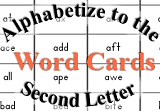

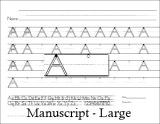 "Manuscript Large"
"Manuscript Large" Edward Hopper - Compartment C, Car 293
Edward Hopper - Compartment C, Car 293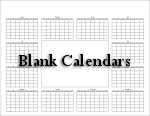 Blank Calendars
Blank Calendars
